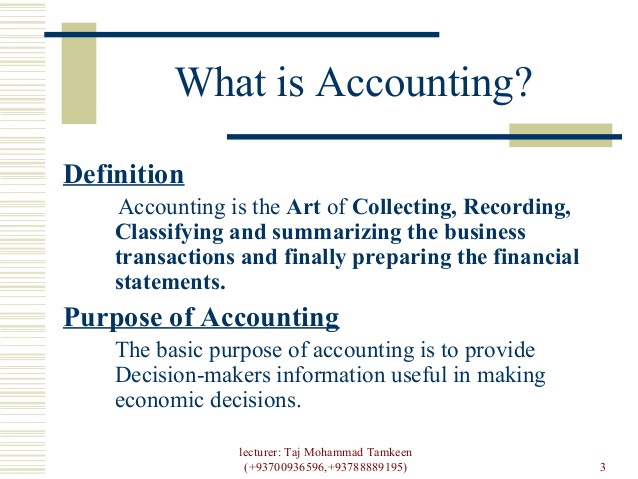Newer HOAs or ones with more basic budgets can prepare one every month without much issue. Revenues of the association are reported when earned, not when received. At the same time, an asset titled “Assessments Receivable” is reported on the Balance Sheet. As payments are received, they increase the association’s Cash balance while either reducing Assessments Receivable or increasing Prepaid Assessments. Every time an HOA manager comes to your board meeting or drives through your community, remember, you are paying for that.
- The “Journal of Accountancy” has been published monthly since 1905 as a forum for practicing CPA’s.
- Next up we’ll mail out a letter to all your vendors to change their billing address so invoices come to us.
- We have structured our organization to assist the Board of Directors in performing their duties in the most cost-effective and responsible manner.
- The term imprest cash refers to a fund of fixed amount used for making small expenditures that are most conveniently paid in cash.
1.29 In most CIRAs, management personnel, or designated volunteers, prepare periodic financial reports for the board of directors. Most CIRAs, however, have annual meetings at which financial statements for the preceding year and budgets for the following year are presented to unit owners. One of the community manager’s primary goals should be to protect the association’s assets with financial procedures of checks and balances, to minimize risk of errors Hoa accounting and losses. The optimal level of internal control is when no one person has responsibility or access to more than one function of the financial operation. An example would be to ensure that neither the accounts payable department (the person who writes the checks) nor the accounts receivable department (the person who enters the money received) reconcile the bank statement. Cloud-based accounting software automates and simplifies accounting for HOAs.
Accounts Should Be Specific and Future-Proof
This prediction is necessary to enable the Board of directors and management to plan the financial affairs of the association, an area of decision making equally as important as the planning of maintenance and repairs. Under the cash basis of accounting, revenue is recognized when cash is received; expenses are recorded when they are paid in cash. The determination of income thus rests upon the collection of revenues and the payment of expenses, rather than upon the earning revenues and the incurring of expenses. The CPA will also conduct an inspection of your HOA’s minutes and contracts for errors. This report comes with a “positive assurance.” The CPA expressly guarantees that all financial statements correctly identify the financial position and health of your homeowners association and all of its operations.
- This will be important during tax season since that’s how the state will decide how much the HOA owes.
- For example, when assessments are due, the Balance Sheet shall reflect Assessments Receivable under assets even if residents have yet to pay.
- The HOA board must review HOA finances for reserve and operating expenses.
- Working under each of our Association Controllers is a Senior Staff Accountant who monitors the general ledger for each association.
- Your HOA management company may have someone on staff that can do this for you, or may even be able to recommend a reputable Certified Public Accountant (CPA) for the job.
It doesn’t hurt to see if they are in a position to offer discounts or deals to long-term clients, but if you don’t ask, they probably won’t bring it up. By communicating regularly with vendors, you won’t be surprised if service prices increase. The board will also have an opportunity to look for a new service provider if they know in advance that a current partner is increasing their prices. Disorganized HOA management can lead to increased risk and potential liability issues. HOA software can play a crucial role in creating consistency, organization, and transparency that reduces risk. Clearly, the foundation of a good homeowner’s association is strong HOA accounting.
Those in favor of the Cash Basis often argue that many HOA managers and board members are more interested in exactly how much cash was received and disbursed during a financial period. However, this cash flow information can be obtained from the other financial information that should accompany the financial reports. To simplify the cash basis method of accounting, look at the bank statements at the end of each month and you can see how much cash was deposited into the bank. Then look at the Check Register to see how many checks were issued during the month. Whether your HOA’s governing documents require it or not, it is often recommend that associations with a large cash flow get an annual audit. Some board members choose to get a yearly audit, while others choose to simply get their financials reviewed.
Cash balances per bank statements and the company’s ledger are reconciled in order to establish the accuracy of the records. In some cases accountants find reconciliations of cash receipts and disbursements (the bases of the balances) to be useful in establishing the accuracy of the balances. Implicit in all control systems of internal control is the concept that no one person should handle all phases of a given transaction from beginning to end. In all Homeowner Associations separate and independent persons or agencies should be established for such functions as purchasing, receiving, finance, and accounting, which assures that no one person handles all phases of a transaction. The time covered by a cash budget is largely determined by the pattern of operations.
HOA Accounting Terms You Should Know
Civil Code Section 5300(b)(1) requires that the annual operating budget distributed to the membership every year follow the accrual basis. The law requires associations to prepare pro forma operating budgets that include all estimated expenses and revenues using the accrued basis method of accounting. With the modified accrual basis method, the amounts for Prepaid Assessments and Assessments Receivable will be the same as the amounts on the Balance Sheet, just as with the accrual basis method. If unpaid invoices appear under Accounts Payable, the amounts will differ from those recorded on the Balance Sheet.
Volunteer board members in a self-managed HOA aren’t always seasoned accounting experts. They may also divide their time between managing the HOA and other responsibilities. This also means that the residents that run the HOA need to know how to maintain their budget and keep their financial information up-to-date. A homeowner’s association is an organization dedicated to the upkeep, improvement, and promotion of a neighborhood.
It gives you a complete look at your HOA’s net worth, including how much money you have in your bank account. Poor HOA financial management can lead to a number of possible consequences both for the HOA and its board. For one thing, bad HOA bookkeeping can cause a major financial fiasco within the association. You might end up overspending and making poor financial decisions as a result of inaccurate records. In some states, it is a legal requirement for HOAs to maintain and submit regular financial statements.
While it’s not mandatory to seek help from an accounting firm, it may be required to have an independent third-party audit or review the association’s books once a year. Each accounting method comes with unique advantages with a different effect on HOA finances. Thus, it’s important for board members to understand which method the association will use.
AICPA’s professional Ethics Division on the application of interpretations and rulings to specific situations. 6.02 CIRAs may elect to file income tax returns using Federal Form 1120 (corporate income tax returns) or Federal Forms 1120H (returns for HOAs) subject to Internal Revenue Code (IRC) section 528. Some CIRAs may file Federal Form 990, a return for tax-exempt organizations. The filing method selected depends on the CIRA’s circumstances and its available income-tax-planning alternatives.
Legal Rights Of Homeowners In HOA Communities And FAQs
Homeowners’ association accounting software is a specialist real estate accounting software that is specifically designed with homeowners’ associations and their relevant activities in mind. As a reminder, the Accrual accounting method is the only method that conforms with the GAAP. This basis provides a more helpful view of a company’s financial situation than traditional cost accounting since it records the company’s current finances as well as future transactions.
The cash basis accounting method records expenses and income when money changes hands. But, as an HOA board member, you should do your part to at least understand the basics of accounting and financial management. After all, even experienced professionals aren’t invulnerable to committing mistakes. By familiarizing yourself with accounting, you can safeguard your association’s finances. One of the best homeowners association accounting rules to adopt is to exercise internal controls. That means not letting a single person have control over every financial department.
Payments Go Directly to The Bank
A comprehensive audit involves the checking of records to ensure they comply with basic accounting principles. On the other hand, liabilities are where you record amounts you owe (i.e. accounts payable). While you may have already received the money, prepaid assessments have yet to be earned. Generally, out of the three methods of HOA accounting, the Accrual Basis method is the healthiest and superior accounting standard to use. Even though it’s a tad bit confusing at the beginning, it’s the only method in conformity with GAAP and is considered the most reliable when it comes to reporting. This basis offers you a more complete and accurate picture of your association’s financial condition.
On a similar note, be mindful of annual increases when working with operational costs. The cost of living is always rising, which means the association’s electricity bill, or pool care service could be more costly next year. When it’s time to create a budget for the next year, take time to review vendor contracts to verify if prices are going to stay the same, or go up. Even a small increase can negatively impact the budget if the association isn’t prepared for it. When the board understands how much the association is spending, and where money is being used, it can make more informed decisions for the community, including where spending could be curbed, and how much dues should be increased.
In addition, because there may be uncertainties about the ability of some owners to pay large special assessments, the board may consider it preferable to fund in advance through periodic assessments. Above all, boards of directors need to be aware that the goal of whatever policies they set should be to enable them to meet their fiduciary duties to maintain and preserve the common property. The cash balance as indicated on the associations balance sheet and the balance shown on the bank statement will seldom agree. Because of financial transactions that have not been received by the bank such as checks issued or deposits not yet recorded by the bank (in Transit) the bank will show a different balance than the association.
The first report shows you a detailed list of owners who are in debt to the HOA, while the second report gives you a list of owners who have paid their assessments ahead of time. In contrast to the Cash Basis, the Accrual Basis records revenues and expenses as they happen, instead of when cash is exchanged. There are currently more than 370,000 homeowner associations in the United States, representing about 40 million households—more than half of owner-occupied homes!
Please note that we are not a CPA Firm and our bookkeeping services do not require a state license. Since the annual operating budget is required to be prepared on the Accrual Basis, then the Income Statement should be prepared on the same basis. Remember, the Income Statement compares the actual revenues and expenses that are reported for the period with the estimated revenues and expenses that were reflected in the budget for the same period. Accounts Payable – The accounts payable report lists all unpaid invoices as of the end of the accounting period. One of the most important behind-the-scenes teams at the HOA management company is the accounting department. All accounting teams are important for any business — both for-profit and nonprofit — but an accounting team with specific HOA-related experience is especially crucial for a community association.



 CeraVe BranD
CeraVe BranD Eucerin BranD
Eucerin BranD LA ROCHE-POSAY
LA ROCHE-POSAY FATIMA HERBAL
FATIMA HERBAL SLIMMING & PAIN KILLER
SLIMMING & PAIN KILLER NATURAL HONEY & HONEY NUT
NATURAL HONEY & HONEY NUT


